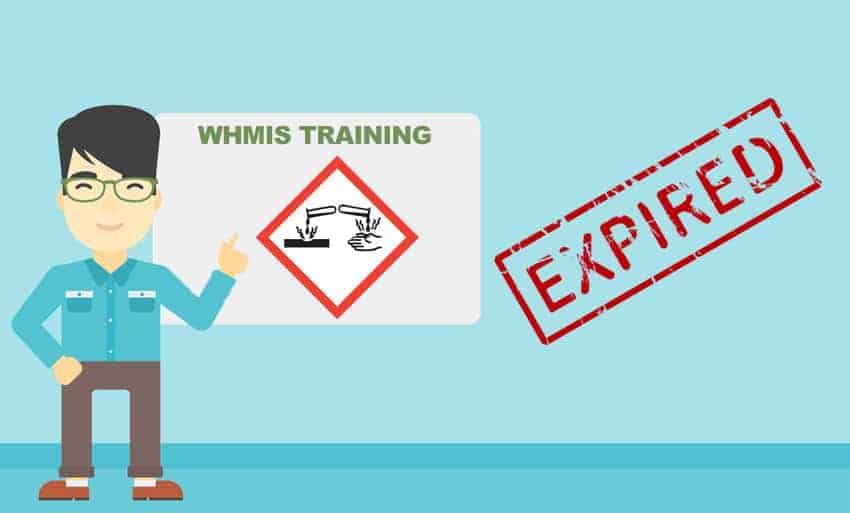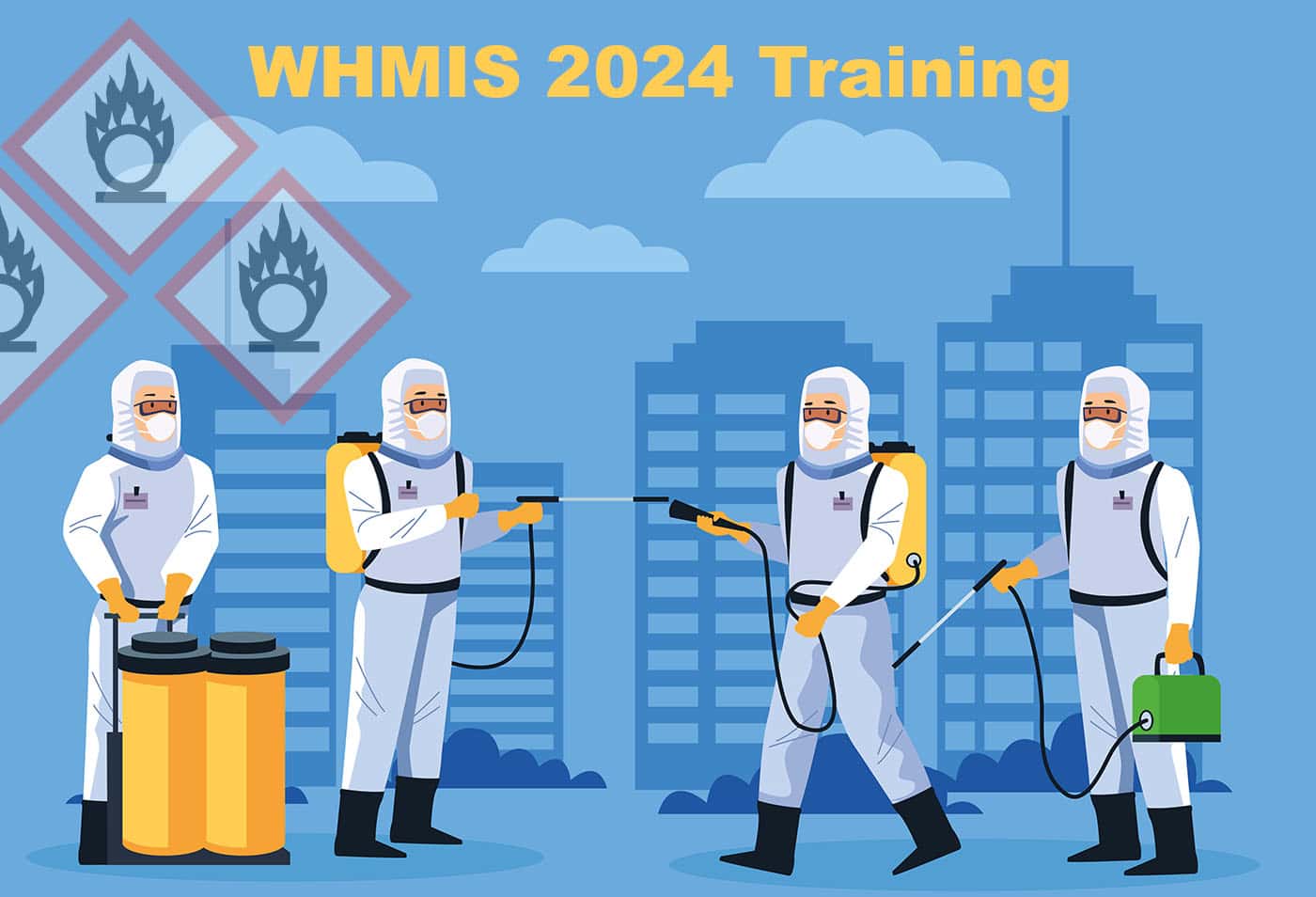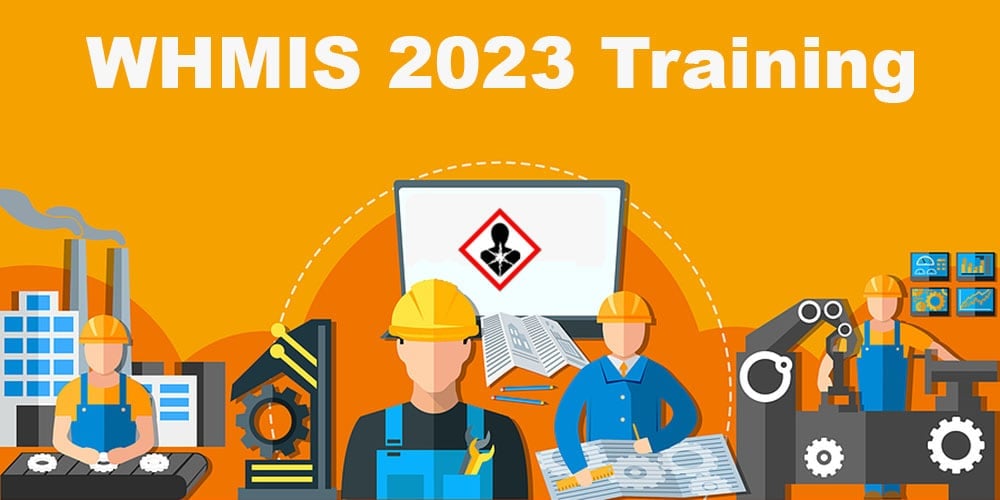Does WHMIS Training Expire?
A question that’s commonly asked about WHMIS relates to exactly how long WHMIS training lasts. Thousands of Google searches are performed every year that includes the phrase, “Does WHMIS training expire”? If you’ve performed this search yourself, you’re probably come to realize that’s it’s not easy to find a clear answer to the question.
Let’s start by examining the legislation.
There is currently nothing in the Canadian legislation that clearly outlines how often a worker needs to take WHMIS training. There is also no indication on how long the WHMIS training lasts before it expires, once they do.
So does that mean that WHMIS training doesn’t expire? Definitely not.
Just because a clearly defined expiration date for WHMIS training can’t be found in the legislation, it doesn’t mean that workers only need to take WHMIS training once.

How Often Do Workers Need WHMIS Training?
When and how often workers need to take WHMIS training can depend on a lot of factors. These factors include the industry the employees works in, whether or not they are directly exposed to chemicals and what those specific chemicals are, and the extent of exposure, just to name a few.
It’s the responsibility of employers to evaluate their workplace and develop an effective WHMIS program in order to eliminate or significantly reduce chemical hazards. A WHMIS program should outline the frequency in which WHMIS training should be provided to workers. In many cases, the question of “When does WHMIS Training Expire”, can be answered by carefully examining a company’s WHMIS program.
Many employers who do not contain many chemicals in their workplaces do not create comprehensive WHMIS programs. They do, however, understand that they’re still required to provide WHMIS training to their workers. This can create issues because they are not certain how often the training is required and when it expires.
Any worker who may be exposed to a hazardous chemical must be able to easily answer the following questions:
- Where can I find information about the hazards associated with the chemicals I’m using or exposed to?
- What exactly are the hazards that I may be exposed to?
- How do I protect myself from those hazards?
- What do I do in case of an emergency?
Quite simply, if a worker cannot answer the above questions, they must immediately receive adequate WHMIS education and training.
Since there is nothing in the legislation answering the question, “When does WHMIS training expire”, are there best practices and recommendations that we can follow? Yes.
WHMIS Training Recommendations and Best Practices
Even though specific WHMIS training frequency is not currently outlined in the legislation, there are WHMIS training best practices and recommendations that can be adhered to.
Generally, it’s recommended that workers receive WHMIS Training at least annually. Following this recommendation is ideal since it helps to ensure that workers are regularly and more easily able to answer the very important questions that we reviewed above. Many workplaces choose to “extend” their WHMIS training by providing a refresher annually, and complete “full” training every two years. This may work well depending on the specific workplace and other factors.
Many would agree that exceeding three years without WHMIS training is definitely too long and could result in significant consequences that include workers become ill or getting injured. It’s also very likely that most legislative authorities would find that workers not having WHMIS training for three years is inadequate, and a company is likely to receive penalties in this case.
It’s important to note that anytime new chemicals are introduced into the workplace, employees who may be exposed to those chemicals must receive additional training. Training for new chemicals must include, but should not be limited to, information on the hazards that they present, how the worker can protect themselves from those hazards, and what to do in the case of an emergency.
Remember, working around chemicals can be very risky, and without adequate WHMIS training, can lead to life changing illnesses, injuries, and even death. Always make sure that you and your workers clearly understand the hazards associated with working with chemicals and the steps that need to be taken to mitigate those hazards.






